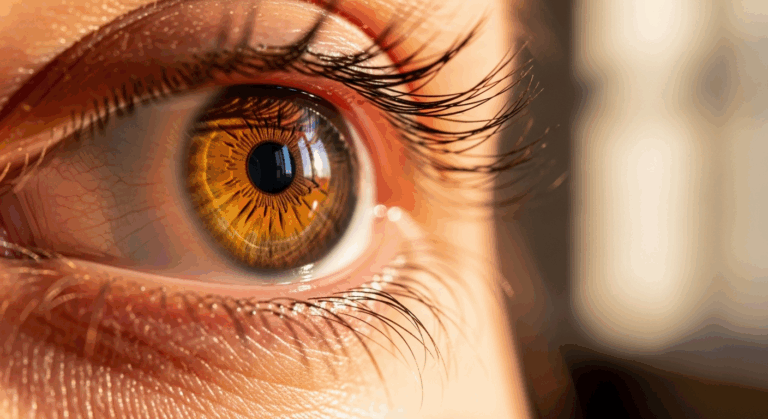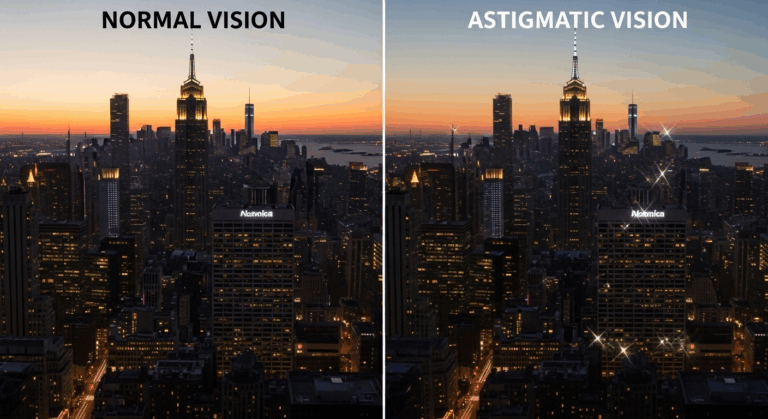We often get asked: “If I wear glasses, will my eyesight get worse?” It’s one of those persistent myths that keeps circulating at dinner tables and on social media. The short answer: no — properly prescribed glasses don’t make your eyes permanently worse. But like most short answers, it needs unpacking. Let’s walk through why people believe the myth, what really causes vision to change, and how to make smart choices for you and your kids.
How glasses actually work
Glasses are a corrective lens system — they adjust how light focuses on your retina so you see clearly. Think of your eye like a camera: if the lens in front of the sensor is slightly off, the image is blurry. Glasses are simply an external lens that re-focuses the image onto the retina. They don’t change the eyeball’s shape by themselves.
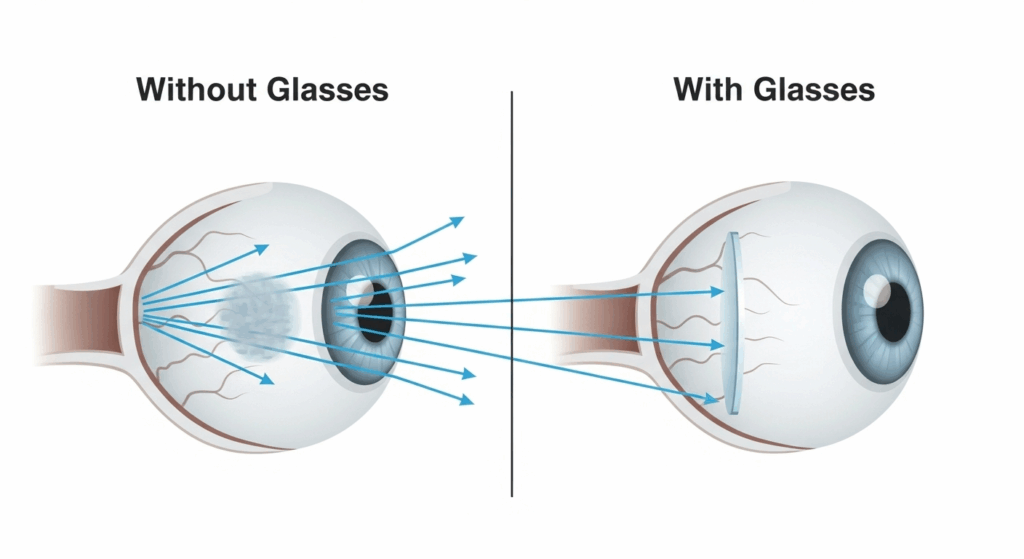
The myth: “glasses weaken your eyes” — why it sounds true
Confusing adaptation for damage
When people first get glasses, things often look shockingly clearer. Afterwards, regular uncorrected vision can feel worse simply because you’re comparing two states — one corrected, one not. That contrast makes normal, unassisted vision feel poorer than before, but it’s not damage.
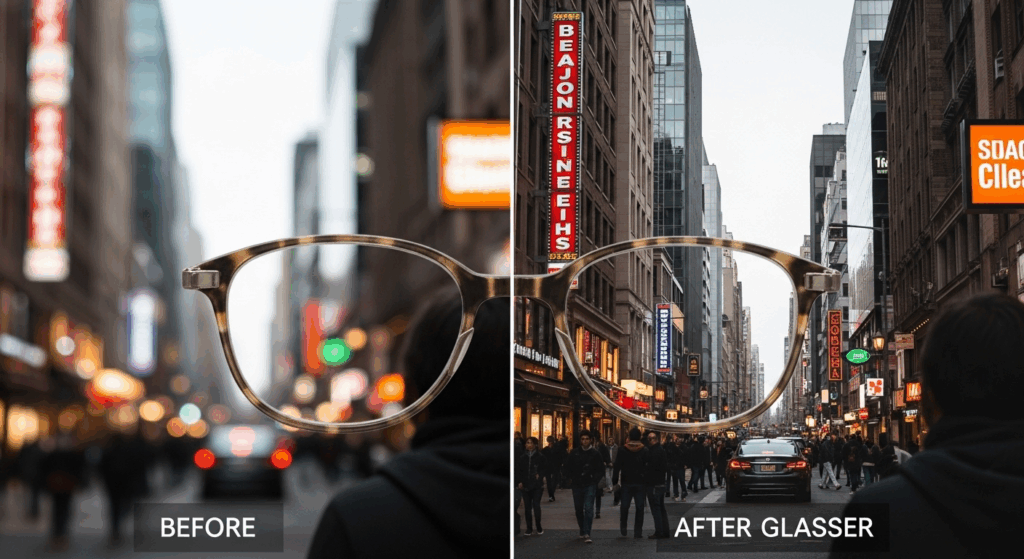
The “dependency” misunderstanding
Kids will say they need their glasses more after wearing them regularly. Parents sometimes interpret that as dependence caused by glasses. In reality, children notice how much better they see with correction — so they naturally prefer to wear them. Not dependence; preference. In some cases, not wearing prescribed glasses can slow visual development, so wearing them is actually protective.
When vision seems to get worse after glasses — common real causes
Your prescription is wrong (or changed)
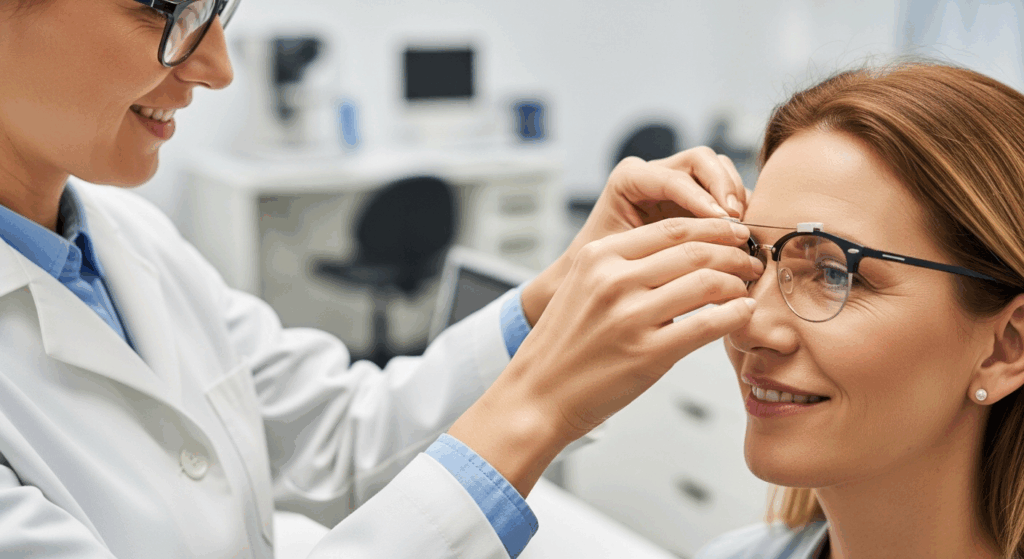
If a prescription is incorrect — too strong, too weak, or poorly fitted — you’ll experience eye strain, headaches, blurred vision, or dizziness. That discomfort can feel like “worsening” vision, but it’s a symptom of an inaccurate correction, not the glasses damaging your eyes. Always get refitted if something feels off.
Overcorrection vs undercorrection
Deliberately or accidentally giving a patient an overcorrected lens (stronger than needed) can cause temporary blur or more discomfort. Clinically, consistent overcorrection is not a recommended way to “weaken” or improve eyes — it’s unnecessary and may increase strain. Modern practice avoids overcorrection, especially in children.
Natural progression of eye conditions (especially myopia)
Many people’s vision worsens over time due to natural processes — genetics, the eye’s axial length changing, and environmental factors like near work and lack of outdoor time. Glasses don’t cause these structural changes; they simply reveal them. Research indicates myopia progression has complex causes unrelated to simply wearing corrective lenses.
Special case: children and myopia progression — what parents should know

We often tell anxious parents: it’s crucial to correct a child’s vision properly. Untreated refractive errors can harm visual development and school performance. Also, myopia (nearsightedness) is rising globally; it’s driven largely by genetics and lifestyle (more near-work, less outdoor time), not by wearing glasses. For children at risk of fast progression, eye care professionals now offer options — specialty contact lenses, low-dose atropine drops, and orthokeratology — that aim to slow axial growth. Glasses alone correct vision but don’t typically control the underlying progression.
Practical tips — how to wear glasses without worry
Get regular eye exams
Vision naturally changes. Aim for annual or biannual checks as recommended by your eye care professional, especially for children and people with rapidly changing prescriptions.
Don’t tolerate discomfort
If your new glasses give you persistent headaches, double vision, or neck strain after the first few days of adaptation, return to the optician or clinic. It could be a fitting, lens alignment, or prescription issue.
Healthy visual habits matter
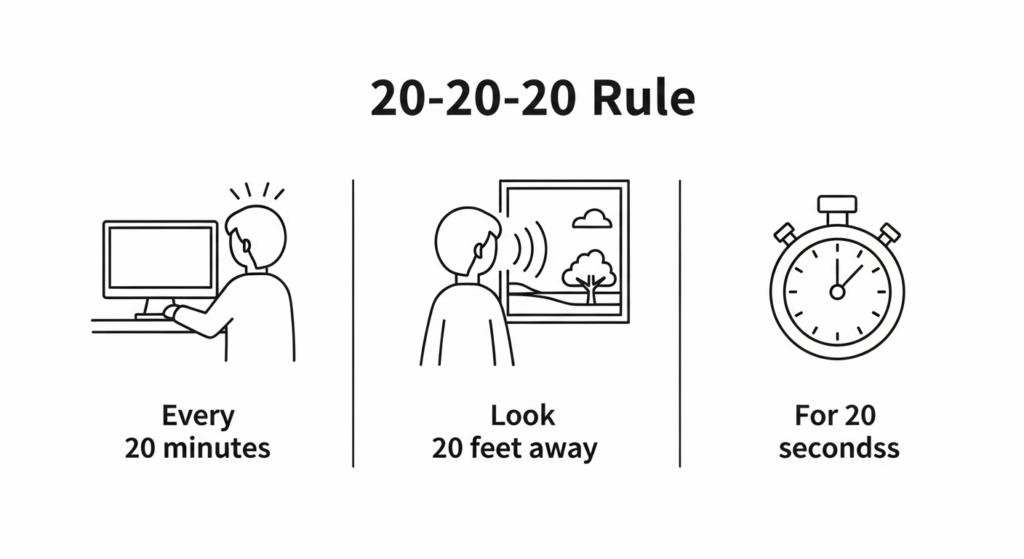
To slow myopia risk (especially in kids), encourage outdoor play, limit prolonged uninterrupted near work and screens, and use the 20–20–20 rule (every 20 minutes look at something 20 feet away for 20 seconds). These habits support eye health far more than worrying about “weakening” from glasses.
Special lenses and blue-light claims
Be skeptical of miracle claims. Blue-light blocking lenses may help comfort for some users, but the evidence they’re needed for prevention of long-term damage is weak; behavioral changes are more effective for computer eye strain. Ask your provider what’s evidence-based for your situation.
Bottom line — are glasses making your vision worse?
No — properly prescribed and fitted glasses do not make your vision permanently worse. If your vision changes, it’s most likely due to the eye’s biology, lifestyle factors, or an incorrect prescription. Glasses are a tool that reveals and corrects those underlying changes — they don’t cause them. Remember: if your eyes feel worse after getting glasses, it’s a signal to go back to your eye care professional, not proof that the glasses are harming you.

